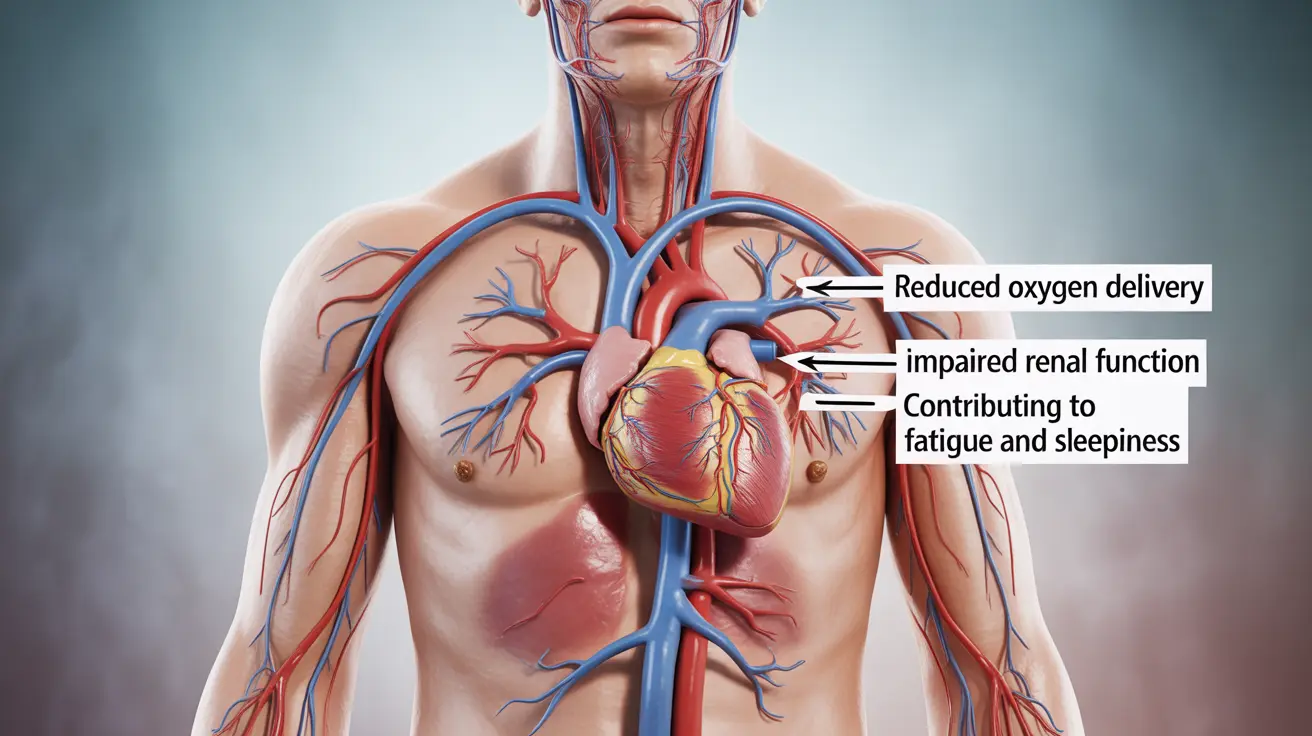Living with congestive heart failure (CHF) often brings significant changes to your energy levels and sleep patterns. Many individuals with CHF experience excessive sleepiness and fatigue, which can significantly impact their daily lives. Understanding why these symptoms occur and how to manage them is crucial for maintaining quality of life while living with heart failure.
In this comprehensive guide, we'll explore the connection between congestive heart failure and increased sleepiness, examine the various factors contributing to fatigue, and discuss practical strategies for managing these symptoms effectively.
The Connection Between Heart Failure and Fatigue
When the heart isn't pumping efficiently due to congestive heart failure, it affects multiple body systems. The reduced blood flow means less oxygen and nutrients reach your tissues and organs, leading to persistent tiredness. Additionally, your body must work harder to compensate for the weakened heart function, which can leave you feeling exhausted even after minimal activity.
Common Causes of Excessive Sleepiness in CHF
Reduced Cardiac Output
The heart's diminished ability to pump blood effectively means your organs and muscles receive less oxygen, leading to increased fatigue and sleepiness during daily activities.
Sleep-Disordered Breathing
Many people with CHF develop sleep apnea or other breathing disorders that can disrupt normal sleep patterns and contribute to daytime drowsiness.
Medication Side Effects
Several medications commonly prescribed for heart failure management can cause drowsiness as a side effect. Beta-blockers, in particular, may contribute to feelings of fatigue.
Managing Fatigue and Sleep Issues
Lifestyle Modifications
Making certain lifestyle changes can help improve energy levels and sleep quality:
- Maintain a consistent sleep schedule
- Create a comfortable sleep environment
- Practice good sleep hygiene
- Engage in appropriate physical activity as recommended by your healthcare provider
- Plan activities during peak energy times
Medical Management
Working closely with your healthcare team is essential for managing fatigue effectively:
- Regular medication reviews and adjustments when needed
- Assessment for sleep disorders
- Monitoring of heart failure symptoms
- Implementation of appropriate exercise programs
Warning Signs and When to Seek Help
While some fatigue is common with CHF, certain symptoms warrant immediate medical attention:
- Sudden increase in fatigue or sleepiness
- Difficulty breathing while lying flat
- Unexplained weight gain
- Increased swelling in legs or ankles
- Persistent coughing or wheezing
Frequently Asked Questions
Why do people with congestive heart failure feel excessively sleepy or tired all the time?
People with congestive heart failure often feel excessively tired because their hearts cannot pump blood efficiently throughout the body. This results in reduced oxygen delivery to tissues and organs, causing fatigue. Additionally, the body expends extra energy trying to compensate for the heart's reduced function.
Can medications for congestive heart failure cause increased sleepiness and fatigue?
Yes, several medications used to treat congestive heart failure can cause drowsiness as a side effect. Beta-blockers, diuretics, and certain other heart medications may contribute to feelings of fatigue. Never stop taking medications without consulting your healthcare provider.
How can I manage or reduce fatigue caused by congestive heart failure?
You can manage fatigue by maintaining a regular sleep schedule, participating in cardiac rehabilitation programs, pacing daily activities, staying properly hydrated, and following your prescribed treatment plan. Regular, appropriate exercise as approved by your healthcare provider can also help improve energy levels over time.
What is the link between sleep problems and worsening congestive heart failure?
Sleep problems and heart failure can create a vicious cycle. Poor sleep can worsen heart failure symptoms, while heart failure can lead to sleep disorders like sleep apnea. This relationship can result in increased fatigue and potentially worsen overall heart function if left unaddressed.
When should I see a doctor if my sleepiness or fatigue gets worse with congestive heart failure?
Contact your healthcare provider if you experience a sudden increase in fatigue, new or worsening breathing problems, unexpected weight gain, increased swelling, or if fatigue significantly impacts your daily activities. These could be signs that your heart failure is worsening and requires medical attention.




